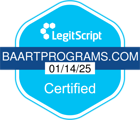Medication-assisted treatment for opioid addiction has a high success rate. Here’s why: Opioid addiction creates a new normal in the body. The body depends on the drugs to generate endorphins – the ‘feel-good’ chemical in the brain. Medication-assisted treatment helps your body restore balance. Your body gets what it needs to avoid horrible withdrawal symptoms, and is able to break the psychological addiction to the heroin, oxycodone, morphine, hydrocodone, or fentanyl.
In the process of regaining a healthy life, many people take a fresh look at nutrition and at practices that make their body feel good. Most important, remember that transitioning to a healthy lifestyle doesn’t happen overnight. Like everything else, it’s one step at a time. The first step is knowledge about what to do to feel better. Many people in medication-assisted treatment find help with natural nutritional supplements, body treatments, and types of exercise. People in San Francisco are often inclined to learn about and practice natural techniques.
Nutritional approaches to healing your body
It takes determination to create new habits, but feeling better is worth it. Understanding how the body works makes it easier to buy into making changes. For example, your body creates a hormone called prostaglandins that help with the healing process at points of pain or inflammation. There are things you can do to encourage and not suppress your body’s production of helpful prostaglandins. Avoid or greatly reduce sugar and most grains from your diet, and take a high-quality fish oil supplement to get enough Omega-3 fats. Other oils that are helpful with pain include evening primrose, black currant, borage oils, and CMO. (Ask your healthcare practitioner which is best for you.)
Supplements for managing pain
Nutritional supplements also help your body get what it needs. Vitamin D is an important healing vitamin, and you can get it from just spending 30 minutes a day outside in the sun. Sun exposure is preferable to a pill, but a supplement may be a good addition. Other supplements that have shown a positive effect on reducing pain include:
- Ginger – Fresh ginger is anti-inflammatory and good also for settling the stomach. Steep it in boiling water as a tea, or grate it into other beverages.
- Curcumin – Curcumin is also anti-inflammatory. Add 1 tablespoon to a quart of boiling water, boil for 10 minutes and then cool. Drink within 4 hours for maximum effectiveness. It’s not very tasty but is a natural way to try to manage pain.
- Cayenne cream – Helps with pain by depleting the body’s supply of substance P which is a transmitter of pain signals to your brain.
- Bromelain – Found in pineapples, this enzyme is anti-inflammatory.
Body treatments and exercise in addition to medication-assisted treatment
- Addiction takes your body down. Getting back into healthy movement restores your body to better functioning. There is a strong mind-body connection that is important when restoring your life. Therefore, helping your body feel better can only benefit the emotional work you are doing to get to a better life.
- Chiropractic treatments may target specific areas of pain or discomfort. A qualified chiropractor can work with you to restore blood flows through musculoskeletal management. Chiropractors are also good sources for nutritional recommendations.
Massage may help with muscle pain, headaches, and healing internal organs through better blood flow. Massage also helps with lowering anxiety, which is very helpful for positive outcomes in treatment. - Yoga, Pilates, walking, or any form of gentle or rigorous exercise encourages your body’s natural production of endorphins. Movement makes your body feel better, which in turn improves your mental outlook.
We’re not making a claim that any of these supplements or treatments will heal you. The above information is presented for consideration as supplemental to your medical professional’s protocol. Always talk with your medical practitioner before self-medicating to make sure that what you’re doing is not in conflict with your treatment plan.


